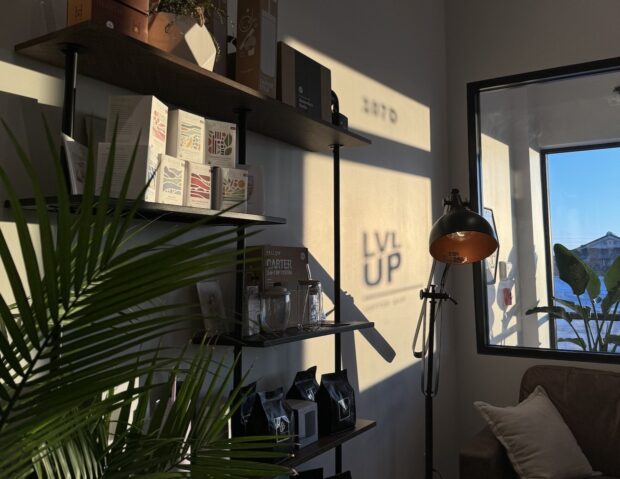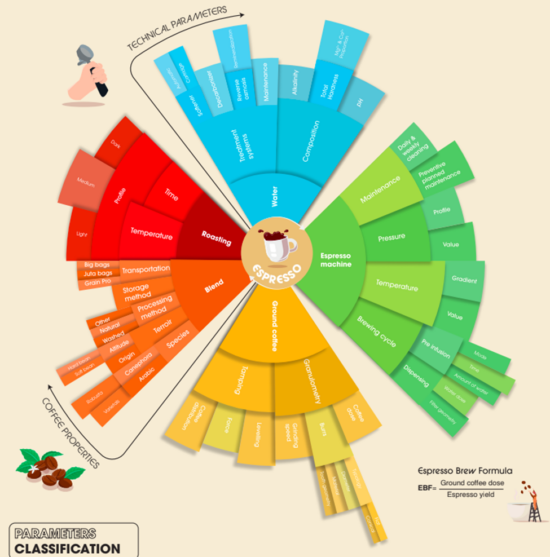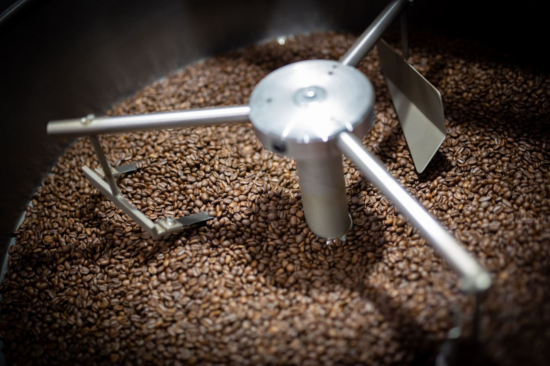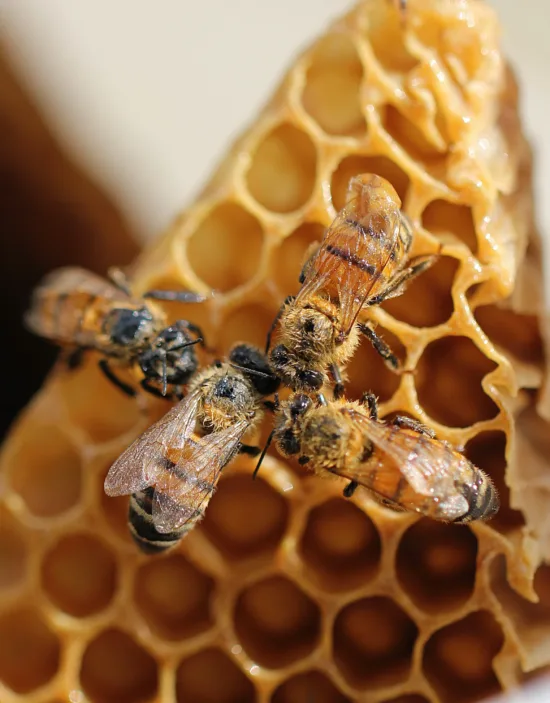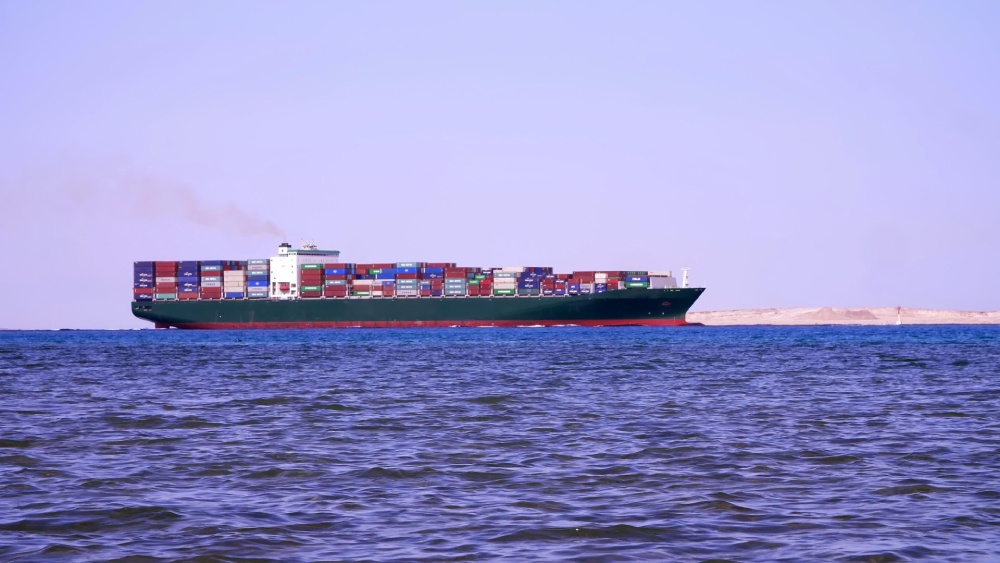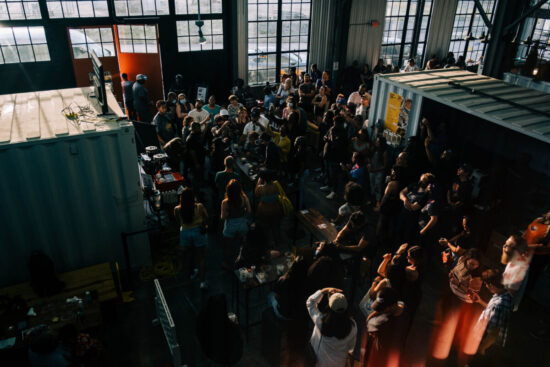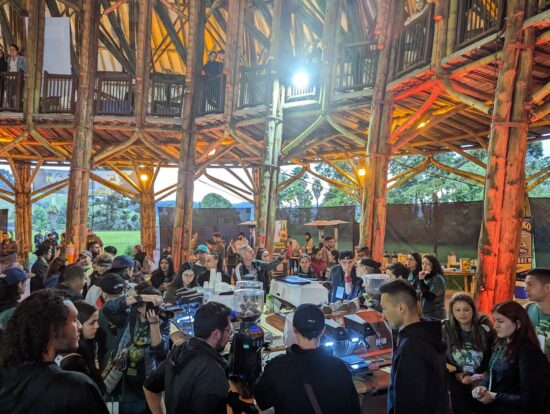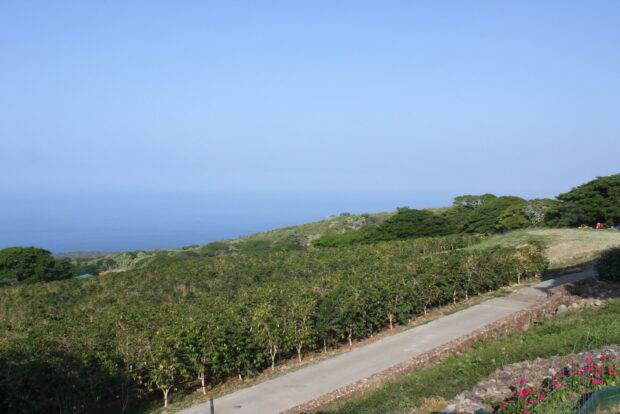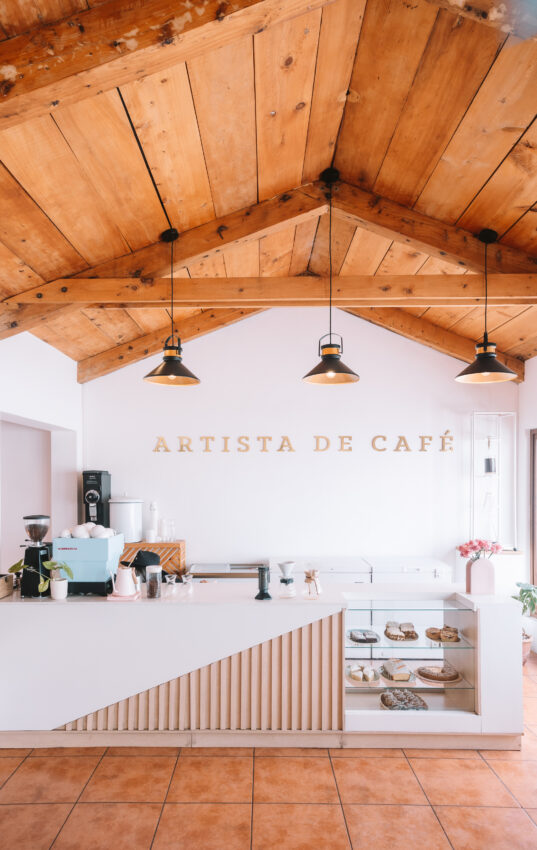Hey everyone! Welcome back to the weekly /r/Coffee thread where you can share what you are brewing or ask for bean recommendations. This is a place to share and talk about your favorite coffee roasters or beans. How was that new coffee you just picked up? Are you...
The coffee industry’s biggest competition: The story of the World Barista Championship
The coffee industry’s biggest competition: The story of the World Barista Championship
The coffee industry’s biggest competition: The story of the World Barista Championship
The coffee industry’s biggest competition: The story of the World Barista Championship
The coffee industry’s biggest competition: The story of the World Barista Championship
The coffee industry’s biggest competition: The story of the World Barista Championship
All arabica coffee is genetically similar: how can beans taste so different?
submitted by /u/fascinatingMundanity [link] [comments]
9 year old Baratza Encore: continue to fix or time to replace?
I’ve been fighting a slow grinding issue for a while now. It takes a long time (3-5 minutes) to grind enough coffee for a pot. The grind seems "fine" as well (the dial is set at 18). The beans seem to "bounce" up from the grinder cone a little....
Quality coffee bean grinders to invest in?
Hello everyone. I'm currently looking for a well-built coffee bean grinder to purchase. To give a little more detail, I'm looking for a grinder that can do coarse (cold brew, French press) and medium (pour over Chemex) grinds well. I currently have an...
Grinder for drip, pour over, and French press
I've been looking to buy a new grinder, I have a Eureka mignon filtro but I'm not happy with how it grinds on the courser end of the spectrum. Its just a mess of huge pieces and small fines and even on some pour overs the grind isnt very good either....
[MOD] Show off your gear! – Battle-station Central
Let's see your battle-stations or new purchases! Tell us what it is you have, post pictures if you want, let us know what you think and how you use it all to make your daily Cup of Joe. Feel free to discuss gear here as well - recommendations, reviews, etc. Feel...
When customers complain about the price of a cup of coffee, how should I respond?
I have to imagine that I'm not the only barista who has tried to give a customer a mini-lecture on the dynamics of the coffee supply chain. For those who have run into this similar question, how have you explained to people why their coffee is expensive using...
Pourover extraction temperature: If you had to accept a gradient, what direction is better?
A little coffee making puzzle I was trying to figure out. If you are making a V60 pourover with a fairly light roast (pick your recipe of choice). Saddly you cannot get water at your target temperature (say 202 F). Your water will either start warmer and get colder,...
Questions about taste, what is good acidity vs. sourness? Too much vs enough bitterness?
Hi all, so basically just got into specialty coffee, before this I'd only ever had instant and over roasted coffee from big chains, since I live in a country with no specialty coffee shops. My set up is, single origin guatamalan beans (freshly roasted a week...
Are there any good instant coffee brands at big box stores like Walmart (in the US)?
I recently went on a rabbit trail of instant coffee concoctions on YouTube, and bought some Folgers Instant Coffee to try it out. I actually quite enjoyed some of the instant coffee lattes I've been trying, but I know Folgers is generally considered pretty low...
Fruity coffee
I recently visited a coffee plantation and bought a bag there. They sold their bags there with labels on how the bean was processed. This “Natural” processed coffee is incredible. It’s fruity. It doesn’t have that like signature “burnt” flavor coffee has. It almost...
When recipes call for water temperature, do they mean the temp inside the kettle right before you pour it, or the temp while it brews?
I don't get it. I often see posts/recipes saying that light roasts need to be in the brewed in the 200F zone, but as soon as my cup is filled with water, the temperature has dropped to the low 190s range (in my case, I'm using an aeropress) So yeah, it drops...
[MOD] Inside Scoop – Ask the coffee industry
This is a thread for the enthusiasts of /r/Coffee to connect with the industry insiders who post in this sub! Do you want to know what it's like to work in the industry? How different companies source beans? About any other aspects of running or working for a...
Different espresso recipe?
I work at a cafe where they are using a dark roast blend and they are pulling 32g from a 18g dose for espresso. Strangely however, they pull it in 6 seconds instead of the usual 20s-30s. I’m not sure why they don’t use the standard recipe and am too afraid to ask...
Fellow Ode SSP astringent and lacking clarity on filter compared to even espresso-focused grinders
I recently acquired a Timemore Sculptor 078s, which is intended to be used primarily for espresso and supposedly doesn’t make the cleanest drip coffee according to reviewers. So out of curiosity I’ve been comparing it a lot over the past couple weeks to my gen 1 Ode...
There Are Two More Qualifying Events This Weekend
This article is from the coffee website Sprudge at http://sprudge.com. This is the RSS feed version. The 2024 United States Coffee In Good Spirits, Brewers Cup, and Latte Art Championship Qualifying Events take place in Bethesda, Maryland and Washington, DC.
Competition, Cold, and More from the 2024 U.S. Coffee Competition Qualifiers in Houston
The first round of qualifiers for the 2024 season of the United States Coffee Competitions featured the U.S. Barista, Cup Tasters, and Roasters qualifying competitions. BY KATE VAN PETTENSPECIAL TO BARISTA MAGAZINE Photos courtesy of U.S. CoffeeChamps The first round...
Aging of coffee (specifically decaf) in freezer
Hey, My girlfriend mostly drink decaf and she has a favorite coffee that she gets from a reputable roaster. Problem is, she really likes it when she gets one at the cafe, but she doesnt when we brew it at home. Even I struggle to get a correct grind size (DF64 V1) and...
Target / Good & Gather Coffee & other "unexpectedly delicious" store brand coffees?
Has anyone tried Target's in-house brand of specialty coffee? I recently decided it was too much money to continue buying super specialty beans from roasters - I know, I feel guilty not supporting smaller local roasters and will still do it every so oftenwhen I...
Examples of refractometer use in a café’s workflow?
Hello all. Curious if any baristas/qc folks here can provide examples of how they’ve used refractometers in their cafés? I understand their limitations, and I am comfortable using refractometry to gain reference points when testing recipes. But I’d really appreciate...
Drip Coffee – Does the machine matter?
Hello, Everyone! I am in a bit of a predicament and would like some guidance. For context - I am still an amateur coffee guy. I have begun to dabble in the coffee world and am slowly building my knowledge. A few years back, I began to explore quality coffee and get...
UK coffee bean recommendations
Hi. Can anyone recommend some companies that do speciality beans. I’ve tried a fair few but I like to rotate and try something new. Here’s a few I’ve tried, some do really good coffee, some I thought were just ok: - Hasbean - Horsham - Perky Blenders - North Star -...
Visiting Amsterdam. Any coffee suggestions?
I'm in Amsterdam this week. Are there any coffee's I should check out while I'm here? I'm from the US so ideally something not available back home. submitted by /u/OlDirtyBrewer [link] [comments]
Coffee beans from Costco
I’ve bought the espresso blend by Kirkland and I don’t hate it. Just wanted other’s thoughts on whole beans from Costco? If you have a preference. submitted by /u/runningiswhatido [link] [comments]
The coffee industry’s biggest competition: The story of the World Barista Championship
Every year, the global coffee industry gears up for one of its most exciting and groundbreaking competitions: the World Barista Championship. For more than two decades, the WBC has been one of the biggest catalysts for change and innovation in specialty coffee, and continues to set even higher standards for baristas around the world to aspire to reach.
More than 140 competitors from dozens of countries take part year after year – all of them hoping to achieve the coveted title of the World Barista Champion. And even if they don’t manage to claim the top spot, the competition’s global platform has the potential to kickstart a number of new career opportunities.
So how did the World Barista Championship become such a prestigious competition? And where could it be heading in the years to come? To find out, I spoke to Colin Smith, founding member and former president of the Specialty Coffee Association of Europe.
You may also like our article on whether the World Barista Championship needs to change.


The WBC: The early days
As well as drawing in hundreds of international competitors, the World Barista Championship attracts significant crowds in the stands and around the stage – in addition to thousands of online spectators watching the live streamed footage. But it wasn’t always this way.
Colin is also the Managing Director of Smiths Coffee Company – a roaster established in 1936. He explains how the idea for the competition first came about.
“We started the Specialty Coffee Association of Europe (SCAE) in 1998 to spread the word and encourage more people to become involved in specialty coffee in Europe,” he tells me. In 2017, the SCAE merged with the Specialty Coffee Association of America (SCAA) to become the Specialty Coffee Association – and represent industry professionals the world over.
“Since some of the bigger chains – like Costa, Starbucks, and Caffè Nero – were becoming more popular in Europe, we believed that establishing the association would be the best way to educate people,” he adds. “And because these chains sell espresso-based drinks, we thought we could capitalise on growing interest by launching the Barista World Championship – as it was called at the time.”
The idea for the competition, however, was not new. In 1998, industry legend Alf Kramer (former president of the SCAE and a pioneering figure in the Scandinavian coffee sector) organised the first-ever Nordic Barista Championship. This set the precedent for the international competition.
“We held the first World Barista Championship in Monte Carlo, Monaco in 2000,” Colin tells me. “It was a small gathering of about 500 people and around 17 competitors in a small corner of a convention centre.”
The first-ever World Barista Championship
In comparison to the 2023 World Barista Championship – which took place at World of Coffee Athens – the first edition of the competition was a more humble affair.
“Competitors from different countries came and ran stands to promote their coffee products, but it wasn’t anything like it is today,” Colin says. “The espresso machines were fitted with mirrors so the spectators could see what was happening.
“There were 14 competitors who all had 15 minutes to prepare three types of beverages: four espressos, four cappuccinos, and four signature beverages,” he adds.
Today, WBC competitors are still required to prepare the same number of drinks – although the cappuccino is now a “milk beverage”.
“The judges assessed creativity, technical skills, and the barista’s presentation, as well as the appearance and the flavour of the drinks,” Colin says. “Each section included a score out of ten.”
While the judging format has largely remained the same, the rules and regulations are now much more expansive and defined than in previous years.
Norwegian competitor Robert William Thoresen was crowned the first-ever World Barista Champion – the first of six Scandinavian coffee professionals to win the first seven editions of the event.


The competition continues to grow
In its 24 years of existence, the World Barista Championship has arguably become the industry’s biggest competition. Whether it’s major rule changes or new sponsors, the WBC continues to grow year after year.
“When the SCAE teamed up with the SCAA, the next competition was held in Miami, US in 2001,” Colin explains. “Scandinavian competitors were still dominating. There were 17 baristas this time, and Martin Hildebrandt from Denmark was the winner.
“In 2002, the event took place in Oslo, Norway,” he adds. “Baristas from 30 countries took part, including Korea and Poland. The following year, the WBC took place in Boston in the US – and was even broadcasted on national morning television to millions of people.
“This was the first time that someone from outside Scandinavia won – with Australia’s Paul Bassett crowned the winner,” Colin continues.
Fast forward to 2006 and the competition had become much bigger than expected. This led to the formation of World Coffee Events – the organising body which still runs the World Barista Championship (along with six other World Coffee Championships) every year.
The first edition of the event held outside of the US and Europe was in Tokyo, Japan in 2007. Around 45 baristas took part, with the UK’s James Hoffmann claiming the world title. Following this, the WBC was hosted in more and more countries, including:
- Colombia
- Austria
- Italy
- Ireland
- South Korea
- The Netherlands
- Australia
- Greece
How did the WBC become so prestigious?
Although it’s faced its fair share of criticism in recent years, the World Barista Championship’s reputation as one of the most celebrated and respected coffee competitions is truly cemented. Without question, it has helped to raise standards in the industry and has pushed the boundaries of creativity and innovation in specialty coffee.
Some of the most well-known names in the global coffee sector have won the competition – including Klaus Thomsen, Tim Wendelboe, Pete Licata, Michael Phillips, and Hidenori Izaki. Many of these winners come from consuming countries, but a steadily growing number of baristas from producing countries such as El Salvador, Guatemala, Colombia, and Brazil have also taken the top spot.
Over the years, the World Barista Championship has certainly attracted a plethora of “coffee celebrities” and career competitors, which has undoubtedly served to strengthen the competition. At the same time, however, the WBC has been an incredibly beneficial platform for up and coming industry professionals to kickstart their careers.
One example of many is 2015 World Barista Champion Saša Šestić, who gained attention for using a rare variety in his routine: a carbonic macerated Sudan Rume. This then set a precedent for baristas to use more exclusive varieties (most notably Gesha) and unique experimentally processed coffees in their performances.
Another unforgettable moment at the WBC was when Polish competitor Agnieszka Rojewska became the first-ever woman to win in 2018 – helping to improve visibility of women in the industry and encourage more female baristas to participate.


So what’s next?
As the coffee industry grows and evolves, it’s evident that World Coffee Events and the SCA also want the WBC to reflect these changes, too.
In 2022, one of the biggest amendments to the competition format was the inclusion of plant milks – a rule change which many in the industry had been requesting for some time.
Although only a small number of people used plant milks at the 2023 competition, this could certainly change in the coming years – especially with Alpro becoming the first-ever qualified plant-based beverage sponsor.
Another noticeable shift in the competition has been a move towards lesser-known coffee species and varieties. In recent years, these have included eugenioides, Sidra, and Pink Bourbon, and we’re sure to see this trend continue at future WBC events. In turn, specialty coffee’s interest in rare varieties is likely to grow.
And with every World Barista Championship seems to come a new set of rules and regulations. While the updates for the 2024 competition seem relatively minor – especially in comparison to the plant milk rule – judging criteria and scoresheets will undoubtedly continue to change.


With the 2024 World Barista Championship fast approaching, the industry will be watching as more than 140 dedicated coffee professionals showcase their skills, expertise, and talent on the global stage.
It’s not always easy to predict what will happen at the competition, but we’re sure to see it reflected in coffee shops and roasteries around the world.
Enjoyed this? Then read our article on whether the World Barista Championship is too exclusive and expensive for competitors.
Photo credits: Specialty Coffee Association, World Coffee Events
Perfect Daily Grind
Want to read more articles like this? Sign up for our newsletter!
The post The coffee industry’s biggest competition: The story of the World Barista Championship appeared first on Perfect Daily Grind.





